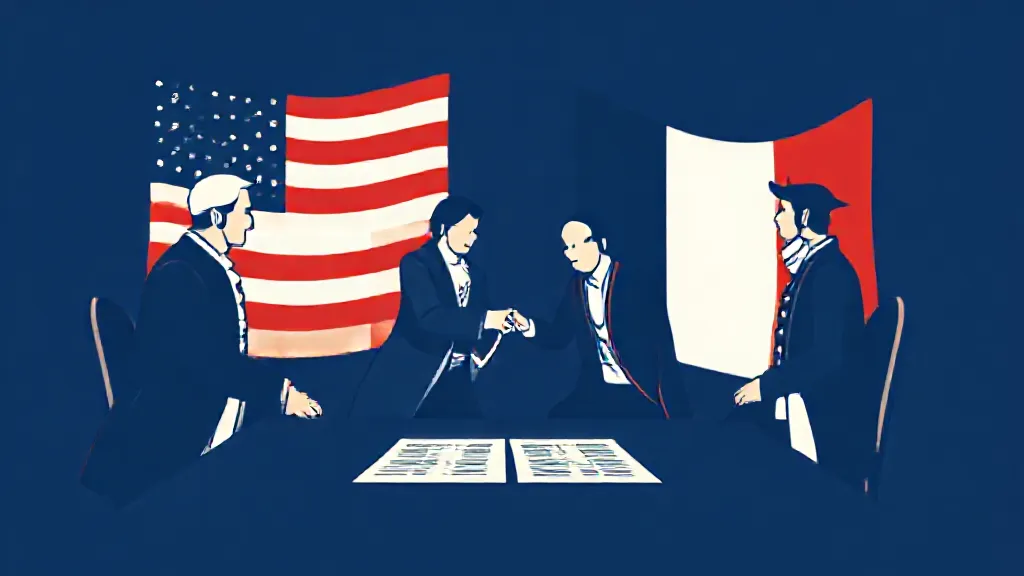The American colonies, during their struggle for independence from British rule, sought allies to bolster their fight against the formidable British Empire. One of the most significant alliances formed during this period was with France, a nation that played a crucial role in the American Revolutionary War. This article delves into the multifaceted reasons behind the colonies' decision to seek French support, examining political, military, and ideological factors that shaped this critical partnership.
Strategic Military Support
The American colonies faced a daunting challenge in their quest for independence. The British military was well-trained, well-equipped, and had a significant advantage in terms of resources and manpower. In contrast, the Continental Army, led by General George Washington, was relatively inexperienced and poorly equipped.
By seeking French allies, the colonies aimed to enhance their military capabilities. The French provided not just troops but also naval support, which was pivotal in key battles such as the Siege of Yorktown in 1781. The French fleet's presence effectively cut off British supply lines and communication, demonstrating the importance of foreign military assistance in the colonies' fight for independence.
Political Calculations and Diplomatic Efforts
The quest for French support was also driven by the political landscape of the time. The American Revolution was not only a war for independence but also a struggle for legitimacy and recognition on the international stage. The colonies understood that gaining a powerful ally like France would lend credibility to their cause and attract further support from other nations.
Diplomatic efforts were spearheaded by figures such as Benjamin Franklin, who was instrumental in negotiating the Treaty of Alliance with France in 1778. This treaty formalized the relationship between the two nations and highlighted the colonies' aspirations for international recognition.
Shared Ideological Goals
Ideologically, the American colonies and France shared common Enlightenment principles that emphasized liberty, democracy, and the rights of individuals.
The French Revolution, which followed the American Revolution, was heavily influenced by the ideas of freedom and self-governance that the American colonists championed. By allying with France, the American colonies were not only seeking military support but also aligning themselves with a nation that shared their vision for a new world order based on democratic ideals. This ideological alignment fostered a sense of camaraderie and mutual purpose between the two nations.
Economic Considerations and Trade Relations
Economic factors also played a significant role in the colonies' decision to ally with France. The war disrupted trade with Britain, leading to economic hardships for the colonies. France, recognizing the potential for economic gain through a partnership with the colonies, offered not only military assistance but also trade opportunities.
The French provided supplies, weapons, and financial support, which were crucial for sustaining the colonial war effort. This economic interdependence reinforced the alliance and highlighted the practical benefits of their partnership.
The Impact of French Support on Colonial Morale
The involvement of France had a profound impact on the morale of the American colonists.
The arrival of French troops and the promise of support from a powerful ally invigorated the colonial forces and inspired confidence among the populace. The French alliance was celebrated in the colonies, and the French military presence was often seen as a turning point in the war. This boost in morale was essential for maintaining the resolve of the Continental Army and the civilian population, who were weary from years of conflict.
Countering British Influence and Isolation
The American colonies were also motivated by the desire to counter British influence in North America and beyond. The British Empire was a dominant global power, and the colonies recognized that aligning with France would help to isolate Britain diplomatically and militarily. By forming an alliance with France, the colonies aimed to disrupt British plans and undermine their authority.
This strategic maneuvering was crucial in shifting the balance of power during the war, as it encouraged other nations to reconsider their positions regarding Britain.
Long-term Consequences of the Alliance
The alliance with France had lasting implications for both nations. For the American colonies, it was instrumental in achieving independence and laid the groundwork for future diplomatic relations.
The success of the American Revolution inspired France to pursue its own revolutionary ideals, leading to the French Revolution. Conversely, the alliance also created a complex relationship between the two nations, marked by both cooperation and conflict in the years that followed. The shared experience of the Revolutionary War established a foundation for Franco-American relations that would evolve over the centuries.
Conclusion: A Pivotal Moment in History
In conclusion, the American colonies sought French allies for a combination of strategic, political, ideological, economic, and morale-boosting reasons. The alliance was not merely a military partnership; it represented a convergence of shared values and mutual interests that ultimately altered the course of history. The support from France was a decisive factor in the colonies' victory over Britain and set the stage for the emergence of the United States as a sovereign nation.
Understanding the complexities of this alliance provides valuable insights into the dynamics of international relations and the pursuit of independence in the face of overwhelming odds.
